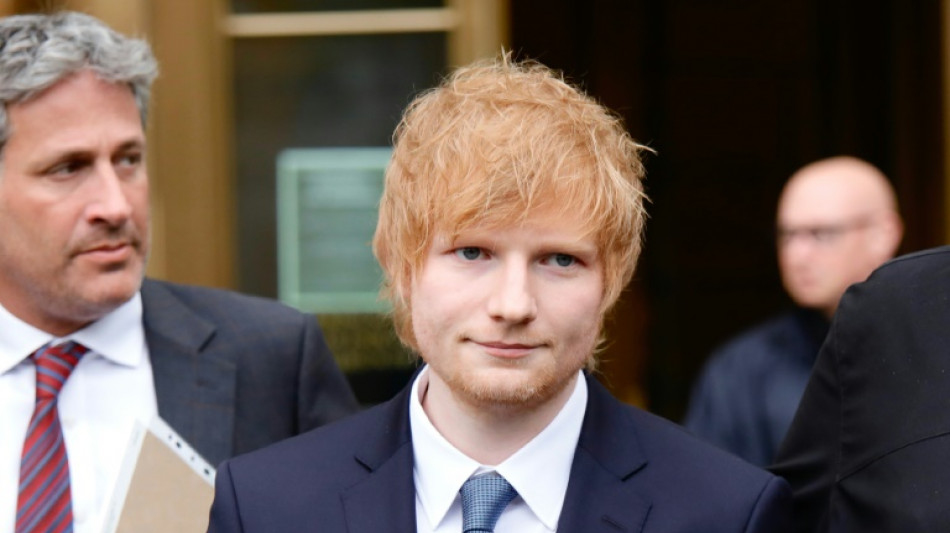
-
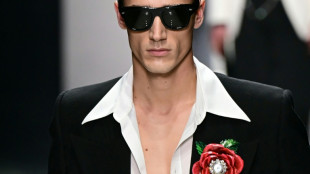 Milan menswear shows add bling with brooches
Milan menswear shows add bling with brooches
-
Scotland recall Gray, Cherry for Six Nations

-
 Scheib storms to Kronplatz giant slalom victory as Brignone impresses in World Cup return
Scheib storms to Kronplatz giant slalom victory as Brignone impresses in World Cup return
-
Chagos Islands: international dispute and human drama

-
 Thousands of farmers protest EU, Mercosur trade deal ahead of vote
Thousands of farmers protest EU, Mercosur trade deal ahead of vote
-
Men's Fashion Week kicks off in Paris with tributes for Valentino
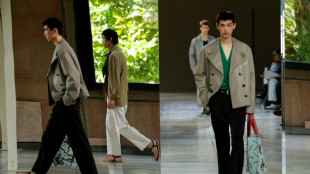
-
 Lake named as captain as Wales unveil Six Nations squad
Lake named as captain as Wales unveil Six Nations squad
-
Royals visit deadly train crash site as Spain mourns

-
 Police, pro-Kurd protesters clash at Turkey border with Syria
Police, pro-Kurd protesters clash at Turkey border with Syria
-
Thai forces razed Cambodian homes on border: rights group

-
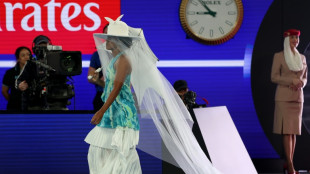 Jellyfish-inspired Osaka battles into Australian Open round two
Jellyfish-inspired Osaka battles into Australian Open round two
-
Valentino taught us to respect women, says partner
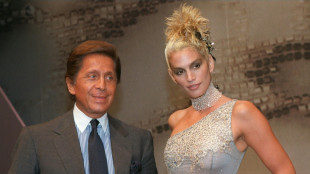
-
 Australia stiffens hate crime, gun laws after Bondi attack
Australia stiffens hate crime, gun laws after Bondi attack
-
Mercedes chief designer Owen to leave F1 team
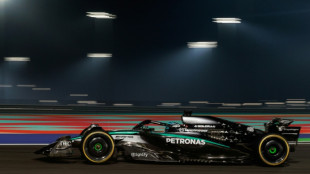
-
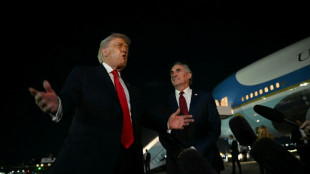 Trump unloads on allies as Davos showdown looms
Trump unloads on allies as Davos showdown looms
-
Moscow revels in Trump's Greenland plans but keeps concerns quiet

-
 Global tourism hit new record level in 2025: UN
Global tourism hit new record level in 2025: UN
-
Senegal poised to party with parade honouring AFCON champs

-
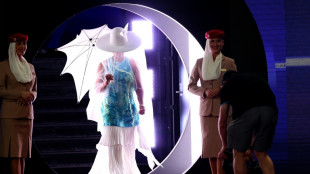 Osaka emerges for Melbourne opener under hat, veil and parasol
Osaka emerges for Melbourne opener under hat, veil and parasol
-
Dogsled diplomacy in Greenland proves elusive for US

-
 Almost half of Kyiv without heat, power, after Russian attack
Almost half of Kyiv without heat, power, after Russian attack
-
EU vows 'unflinching' response to Trump's Greenland gambit

-
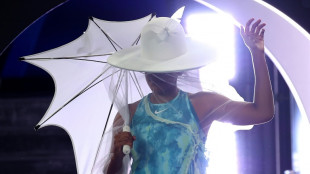 Osaka steals show at Australian Open as Sinner strolls through
Osaka steals show at Australian Open as Sinner strolls through
-
Brignone impresses in first run of Kronplatz giant slalom in World Cup comeback
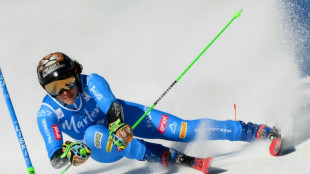
-
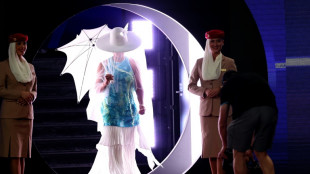 Osaka emerges for Melbourne opener under white hat and umbrella
Osaka emerges for Melbourne opener under white hat and umbrella
-
Malawi suffers as US aid cuts cripple healthcare

-
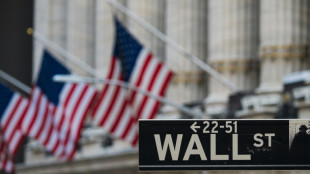 Bessent says Europe dumping US debt over Greenland would 'defy logic'
Bessent says Europe dumping US debt over Greenland would 'defy logic'
-
Freeze, please! China's winter swimmers take the plunge

-
 Talks between Damascus, Kurdish-led forces 'collapse': Kurdish official to AFP
Talks between Damascus, Kurdish-led forces 'collapse': Kurdish official to AFP
-
In-form Bencic makes light work of Boulter at Australian Open
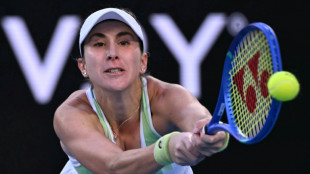
-
 Spain mourns as train disaster toll rises to 41
Spain mourns as train disaster toll rises to 41
-
Sinner into Melbourne round two as opponent retires hurt

-
 Israel begins demolitions at UNRWA headquarters in east Jerusalem
Israel begins demolitions at UNRWA headquarters in east Jerusalem
-
Almost half of Kyiv without heat, power, after Russian attack: govt
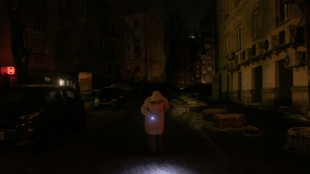
-
 Veteran Monfils exits to standing ovation on Australian Open farewell
Veteran Monfils exits to standing ovation on Australian Open farewell
-
Precision-serving former finalist Rybakina powers on in Melbourne

-
 South Korea's women footballers threaten boycott over conditions
South Korea's women footballers threaten boycott over conditions
-
Equities sink, gold and silver hit records as Greenland fears mount
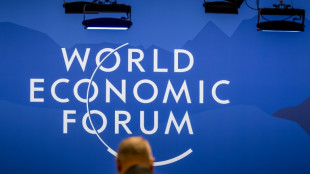
-
 Australian lawmakers back stricter gun, hate crime laws
Australian lawmakers back stricter gun, hate crime laws
-
EU wants to keep Chinese suppliers out of critical infrastructure

-
 AI reshaping the battle over the narrative of Maduro's US capture
AI reshaping the battle over the narrative of Maduro's US capture
-
Penguins bring forward breeding season as Antarctica warms: study

-
 Vietnam leader pledges graft fight as he eyes China-style powers
Vietnam leader pledges graft fight as he eyes China-style powers
-
Ukrainian makes soldier dad's 'dream come true' at Australian Open
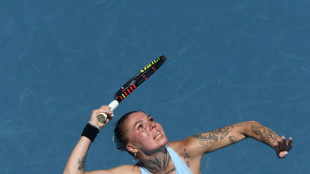
-
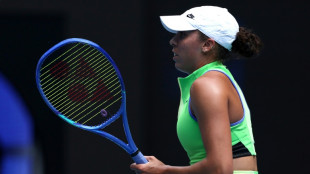 'Timid' Keys makes shaky start to Australian Open title defence
'Timid' Keys makes shaky start to Australian Open title defence
-
Indiana crowned college champions to complete fairytale season
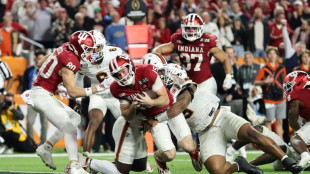
-
 South Koreans go cuckoo for 'Dubai-style' cookies
South Koreans go cuckoo for 'Dubai-style' cookies
-
Harris leads Pistons past Celtics in thriller; Thunder bounce back
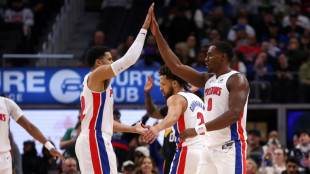
-
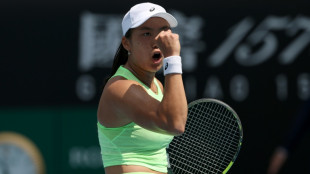 Tjen first Indonesian to win at Australian Open in 28 years
Tjen first Indonesian to win at Australian Open in 28 years
-
Long-delayed decision due on Chinese mega-embassy in London

| SCS | 0.12% | 16.14 | $ | |
| RIO | -0.45% | 84.755 | $ | |
| NGG | -0.77% | 80.27 | $ | |
| GSK | -0.85% | 47.82 | $ | |
| VOD | 0.22% | 13.5 | $ | |
| RYCEF | 0.12% | 17.05 | $ | |
| BTI | -2.37% | 56.87 | $ | |
| AZN | -5.37% | 89.615 | $ | |
| CMSC | -0.3% | 23.48 | $ | |
| RBGPF | -1.87% | 82.5 | $ | |
| BCE | 0.04% | 24.15 | $ | |
| JRI | 0.07% | 13.69 | $ | |
| CMSD | -0.29% | 23.85 | $ | |
| RELX | -3.05% | 40.39 | $ | |
| BCC | -2.25% | 83.66 | $ | |
| BP | -0.03% | 35.375 | $ |

Sheeran copyright battle could stoke songwriting paranoia
Ed Sheeran is preparing for a blockbuster tour and album release amid regular trips to Manhattan's federal court, where he's defending his songwriting in a closely watched copyright case.
The trial centers on whether the British pop phenom plagiarized Marvin Gaye's 1973 soul classic "Let's Get It On" in his 2014 hit "Thinking Out Loud."
The heirs of Ed Townsend, who co-wrote Gaye's smash, are behind the civil suit, and allege "striking similarities and overt common elements" between the songs.
It's the latest in a series of high-profile music copyright cases that have the industry on edge, leaving some songwriters paranoid about their own creative processes and vulnerability to litigation.
Sheeran, 32, has spent days testifying with guitar in hand, playing demos for the court to prove the 1-3-4-5 chord progression that's primarily in question is a basic building block of pop music that can't be owned.
His legal team argues that Gaye and Townsend were far from the first to record it, citing, for example, a number of Van Morrison songs that use the sequence and that were released prior to "Let's Get It On."
It's a notion echoed by forensic musicologist Joe Bennett.
"The world I want to live in is one where nobody sues anyone for a one- or two-bar melodic or harmonic similarity, because those similarities can so easily occur through coincidence," the professor at Massachusetts' Berklee College of Music told AFP.
"They shouldn't be protectable by copyright."
The case hinges on the actual composition of the songs rather than the recorded versions -- think sheet music, not vibes.
In theory that's a specificity that could help Sheeran's case, but once a music copyright suit reaches the point of jury trial, anything can happen.
Winning demands significant funding and resources, and defendants are beholden to the volatility of opinions from jury members who almost certainly don't have a background in musicology.
Both sides have hired expert witnesses to explain the technical details to jurors, but, of course, their conclusions differ significantly.
"If you play music to a jury, it could go either way," Bennett said.
- 'Chilling effect' -
There have been a handful of landmark music copyright cases in recent years, notably in 2016 when Gaye's family -- who is not part of the New York lawsuit against Sheeran -- successfully sued the artists Robin Thicke and Pharrell Williams over similarities between the song "Blurred Lines" and Gaye's "Got to Give it Up."
The result surprised many in the industry, including legal experts, who considered many of the musical components cited as foundational, and existing largely in the public domain.
Shortly thereafter an appeals court decision confirmed Led Zeppelin's victory over a similar case centered on the classic "Stairway to Heaven" -- a boon for songwriters.
"One reason that this Ed Sheeran case may be really important to the industry is that it's a data point that would show well is the pendulum actually back on the other side, or are we just going back and forth?" said Joseph Fishman, a law professor specialized in intellectual property at Vanderbilt University.
"If it's going back and forth, that could still have a chilling effect on how songwriters write, because you never know -- is my case going to be the one?"
And unintended infringement is a weak defense: in 1976, George Harrison was found liable for "subconsciously" plagiarizing "He's So Fine" by the Chiffons for his first solo hit "My Sweet Lord."
In his memoir Harrison later wrote that he suffered a "paranoia about songwriting that had started to build up in me."
This week Sheeran told the court that fellow songwriters have told him "you have to win this for us" adding with a tone of exasperation that if the Townsend estate prevails, "I'm done."
"I find it really insulting to work my whole life... and have someone diminish it by saying that I stole it," Sheeran said on the stand Monday.
Bennett said many of his students at Berklee -- a prestigious conservatory of contemporary music -- have voiced concern over the Sheeran case, speaking as the next generation of songwriters.
One of them, 21-year-old Mary Jo Swank, told AFP that "I've definitely grown a fear that the idea of being completely original and unique is going to put the emotional and creative process of a songwriter in jeopardy."
"It'd be nice if I'd be allowed to write my take on a 1-3-4-5 progression without having to worry that it's not unique enough."
P.Anderson--BTB




